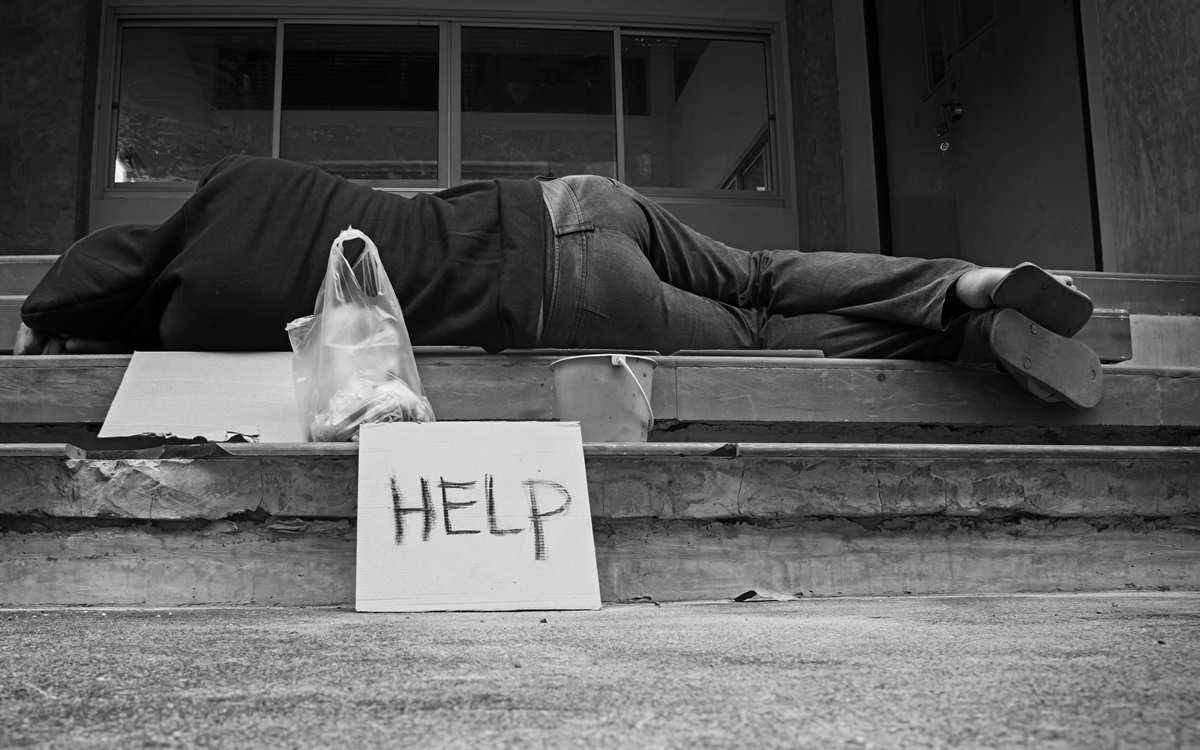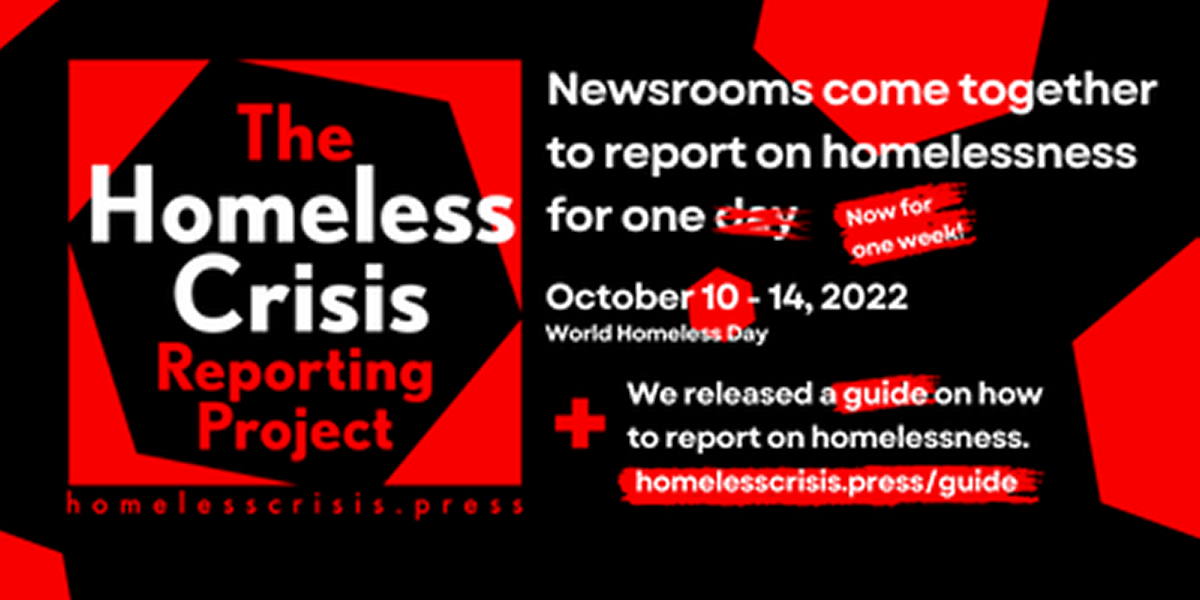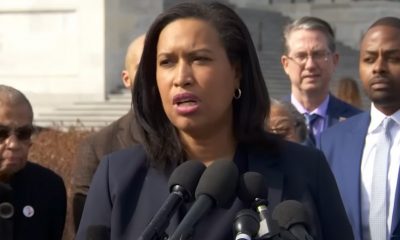District of Columbia
Number of D.C. shelters serving LGBTQ homeless is growing
Existing groups step in to fill gaps created by Casa Ruby shutdown


The Wanda Alston Foundation states on its website that it made history in 2008 when it opened D.C.’s first transitional housing program solely dedicated to LGBTQ+ youth ages 18 to 24 experiencing homelessness.
As part of that program, the foundation, named after the late and beloved LGBTQ rights advocate Wanda Alston, has since opened two more LGBTQ youth homeless facilities, including one that opened last year that also made history.
Referred to as Renita’s, it’s a two-bed, two-year transitional housing program believed to be the first known such facility focused specifically on serving homeless transgender men of color.
In January 2017, the D.C. LGBTQ youth advocacy organization SMYAL opened the first of five housing sites it currently operates that can serve up to 66 LGBTQ youth experiencing homelessness.
Like the Alston Foundation, SMYAL states on its website that it provides a wide range of services for its LGBTQ youth residents in addition to a safe and stable shelter, including food, case management services, mental health counseling, crisis intervention, and employment related skills development.
The two groups also have designated at least one of their housing facilities to offer their residents extended transitional housing for up to six years.
Beginning in 2012, Casa Ruby, under the direction of its founder Ruby Corado, evolved into the city’s largest LGBTQ specific emergency shelter facility, operating what it said was a greater than 50-bed shelter program at seven locations. The program provided services in both English and Spanish to youth and some adults. It had a special outreach to transgender women of color in need of housing.
But due to a financial crisis brought about by the loss of hundreds of thousands of dollars in D.C. government grants and which remains under investigation by the Office of the D.C. Attorney General, Casa Ruby curtailed and eventually shut down all of its operations during a year-long period that culminated this past July. In court documents filed as part of a civil complaint filed against Casa Ruby, the AG’s office said, among other things, the loss of city funding was brought about by Casa Ruby’s failure to provide required finance reports verifying how the money was spent. Corado disputes that allegation.
At the request of the AG’s office, a D.C. Superior Court judge has placed Casa Ruby in receivership and appointed the Wanda Alston Foundation as the receiver.
In a report released last month, the Alston Foundation recommended that Casa Ruby be dissolved, saying its debts far exceed any remaining assets. The judge has yet to hand down a ruling on whether to dissolve the once highly regarded LGBTQ organization or take steps to determine if it can be revived.
Since its shutdown, other local organizations, including SMYAL, have taken steps to provide support for the Casa Ruby clients impacted by the shutdown.
“Following the closure of Casa Ruby, SMYAL has been working with our partners at other housing providers, the D.C. Department of Human Services, and the Mayor’s Office of LGBTQ Affairs to identify and fill gaps in services,” SMYAL spokesperson Hancie Stokes told the Washington Blade.
“Most directly, SMYAL has launched a new Latinx Street Outreach program that is designed to support Spanish-speaking LGBTQ youth who may have been connected to services or in need of new services,” Stokes said in an email. “We started piloting this program just last month and have already begun working with 22 Spanish-speaking youth to connect or reconnect them with services, including housing, and assist them with obtaining vital documents, and navigating legal procedures,” she said.
In September 2021, the D.C. Department of Human Services informed Casa Ruby it would not renew its main grant that funded the Casa Ruby homeless shelter program. At that time, DHS announced it had awarded a grant for a new D.C. LGBTQ youth homeless shelter to Covenant House, a nonprofit group that provides homeless youth services nationwide. The Washington Post reported the grant was for $648,000,
Covenant House announced it opened the new 24-bed LGBTQ youth shelter, called Shine, on Sept. 30, 2021, in the city’s Deanwood neighborhood in Northeast D.C. Although other non-LGBTQ organizations currently provide homeless-related services, including shelter accommodations, for LGBTQ youth, the Covenant House Shine facility is believed to be the city’s first LGBTQ shelter operated by a non-LGBTQ specific organization.
“Most LGBTQ+ young people access services from non-LGBTQ-specific agencies,” Covenant House states on its D.C. website. “At Covenant House, we’re proud of the diversity of the youth in our houses and the staff who welcome and serve them,” the statement says. “All young people facing homelessness are welcome here and are embraced with unconditional love, absolute respect, and relentless support.”
With nearly all LGBTQ specific homeless facilities in D.C. focusing on youth, the city’s first official shelter for LGBTQ adults opened its doors on July 14 of this year following a ribbon-cutting ceremony led by D.C. Mayor Muriel Bowser.
The 40-bed shelter, located in the city’s Marshall Heights neighborhood at 400 50th St., S.E, will accommodate unaccompanied adults 25 years of age and older, according to a statement released by the mayor’s office.
“The shelter will provide trauma-informed case management services including mental health, substance abuse treatment, medical, and victims’ services,” the statement says.
“We are proud to cut the ribbon on a shelter that embodies our D.C. values as well as our commitment to making homelessness rare, brief, and nonrecurring,” Bowser said at the ceremony. “With this new facility, we’re breaking down barriers to shelter, building community, connecting residents with the trauma-informed services they need to live healthy, happy lives,” the mayor said.
Under city funding, the new LGBTQ adult shelter is being operated by the Community Partnership for the Prevention of Homelessness (TCP), the statement from the mayor’s office says. It says two other local nonprofit groups, Coalition for the Homeless and the KBEC Group, Inc., will assist TCP in operating the shelter.
At least two other non-LGBTQ locally based organizations – the Latin American Youth Center (LAYC) and Sasha Bruce Youthwork – also provide services for homeless LGBTQ youth, including housing-related services, the two groups state on their websites.
Stokes, the SMYAL spokesperson, said the non-LGBTQ organizations operating homeless programs for LGBTQ people are meeting a need for increased services. But she said additional training may be needed to ensure that all organizations can fully meet the specific needs of their LGBTQ clients.
“There is still a lot of work that needs to be done in order to ensure LGBTQ youth who are matched with non-LGBTQ-specific providers are affirmed, welcomed, and supported fully,” Stokes said.
“SMYAL and our partners have been working to increase cultural competency among all housing providers, but there is a continued need to invest in training providers to build capacity to directly serve LGBTQ youth, as well as creating solid foundations for additional providers who are accessible to LGBTQ youth,” she said.
The 2022 Point-in-Count findings show a continued trend in decreasing numbers of homeless people in D.C. Mayor Muriel Bowser pointed out at the time the results were released in April that the total homeless count of 4,410 was down from 8,350 homeless people counted in 2016.
The mayor noted that the 2022 findings show single adult homelessness decreased 12 percent from the 2021 count and family homelessness was down by 14 percent from 2021.
District of Columbia
Two charged with assaulting, robbing gay man at D.C. CVS store
Incident occurred after suspects, victim ‘exchanged words’ at bar

D.C. police just after 1 a.m. on April 10 arrested two men for allegedly assaulting and robbing a gay man inside a CVS store at 1418 P St., N.W., according to a police report and charging documents filed in D.C. Superior Court.
The charging documents state that the alleged assault and robbery occurred a short time after the three men “exchanged words” at the gay bar Number 9, which is located across the street from the CVS.
The arrested men are identified in the charging documents as Marquel Jose Diaz, 27, of Northwest D.C., and Lorenzo Jesse Scafidi, 21, of Elizabeth City, N.C. An affidavit in support of the arrest for Diaz says Diaz and the victim “were previously in a relationship for a year.”
Court records show Diaz was charged with Simple Assault, Theft Second Degree, and Possession of a Controlled Substance. The court records show the controlled substance charge was filed by police after Diaz was found to be in possession of a powdered substance that tested positive for cocaine.
Scafidi was charged with Simple Assault and Theft Second Degree, the court records show.
The D.C. police report for the incident does not list it as a suspected hate crime.
The court records show both men pleaded not guilty to the charges against them at a Superior Court arraignment on the day of their arrest on April 10. The records show they were released by a judge while awaiting trial with an order that they “stay away” from the victim. They are scheduled to return to court for a status hearing on May 21.
The separate police-filed affidavits in support of the arrests of both Diaz and Scafidi each state that the two men and the victim “exchanged words” inside the Number 9 bar. The two documents state that both men then entered the CVS store after the victim went to the store a short time earlier.
Scafidi “came into the CVS shortly after and entered the candy aisle and slammed Complainant 1 [the victim] to the ground causing Complainant 1’s phone to fall out of CP-1’s pocket,” one of the two affidavits says. It says Scafidi “again picked up CP-1 and slammed him to the ground.”
The affidavit in support of Diaz’s arrest says Diaz also followed the victim to the CVS store after words were exchanged at the bar. It says that after Scafidi allegedly knocked the victim down in the candy aisle Diaz picked up the victim’s phone, “swung on” the victim “while he was still on the ground,” and picked up the victim’s watch before he and Scafidi fled the scene.
Without saying why, the two arrest affidavits say Diaz and Scafidi returned to the scene and were arrested by police after the victim and at least one witness identified them as having assaulted and robbed the victim.
Attorneys representing the two arrested men did not respond to phone messages from the Washington Blade seeking comment and asking whether their clients dispute the allegations against them.
The victim also did not respond to attempts by the Blade to obtain a comment from him. The police report says the victim is a resident of Fairfax, Va.
District of Columbia
Bowser calls for ‘extraordinary’ response to reduction in D.C. budget
Impact on city funding for LGBTQ programs and grants unclear

D.C. Mayor Muriel Bowser on April 15 issued an executive order calling for “extraordinary actions,” including “significant cuts in District Government services,” to address a decision by Congress to cut the city’s current budget by $1.1 billion.
The nine-page executive order points out that these actions became necessary after the U.S. House of Representatives has so far declined to vote on a free-standing bill approved by the U.S. Senate last month that would restore the $1.1 billion D.C. budget cut initially approved by the House.
In addition to large-scale cuts in city services, the mayoral order says the congressionally imposed city budget cut will bring about city “hiring freezes, financial impacts to employees, reductions and terminations in contracts and grants, and closures of District Government facilities.”
The order adds, “These are unprecedented actions given that the District itself adopted and is able to implement a fully balanced budget, but they are necessary due to the Congressional cut to the District’s budget and its inaction in timely fixing its legislative error.”
The House adjourned this week on a recess until the end of April, and congressional observers say it is unclear whether the majority Republican House will take up the Senate bill to undo the D.C. budget cut when the House returns from its recess. President Donald Trump has called on the House to approve the bill to restore the full D.C. budget.
Among the D.C. LGBTQ organizations and those providing services to the LGBTQ community that receive D.C. government funding and that could be impacted by the budget cuts are Capital Pride Alliance, which is organizing WorldPride 2025 set to take place in D.C. next month; and Whitman-Walker Health, one of the city’s largest private healthcare organizations that provides medical services for LGBTQ clients.
Also receiving city funding are the Wanda Alston Foundation, which provides housing services for LGBTQ people; and the LGBTQ youth advocacy and services organization SMYAL.
Spokespersons for the four organizations couldn’t immediately be reached to determine if they knew whether the soon-to-be implemented budget cuts would have an impact on the city funding they currently receive.
In response to questions from news reporters during an April 15 press conference call to discuss the Bowser executive order, Jenny Reed, director of the D.C. Office of Budget and Performance Management, said details on specific programs or funding allocations set to be cut would not be known until the mayor submits to the D.C. Council her Supplemental FY 2025 budget along with her proposed FY 2026 budget.
Reed was joined at the press briefing by Lindsey Parker, Mayor Bowser’s chief of staff; and Tomas Talamante, director of the Office of Intergovernmental Affairs.
They and other city officials have said the impact of the congressionally imposed city budget cut was expected to be lessened but remain highly problematic by Bowser’s decision to invoke a 2009 law that allows the city to increase its own spending without approval by Congress under certain circumstances.
The mayor has said under that law, the city would need to cut its FY 2025 budget by $410 million rather than by $1.1 billion. It couldn’t immediately be determined whether House Republicans, who initiated the requirement that the D.C. budget be cut by $1.1 billion, would challenge the mayor’s plan to invoke the 2009 law to reduce the size of the budget cut.
“Without the ability to fully execute the Fiscal Year 2025 budget as adopted and approved by the District, this gap will force reductions in critical services provided by our largest agencies, including the Metropolitan Police Department and the Fire and Emergency Medical Services Department,” the mayor’s executive order states.
“The District will continue to work with members of the House of Representatives to urge them to vote to fully restore the District’s Fiscal year 2025 budget and will continue to work with President Trump to strongly encourage the House of Representatives to take that action,” the order says.
District of Columbia
LGBTQ budget advocates fight for D.C. resources in a tough fiscal year
‘Trying to preserve life-saving services’ amid $1 billion cut

The months and days leading up to June are especially busy for LGBTQ Washingtonians. For one group, the DC LGBT Budget Coalition, which works year-round to ensure LGBTQ residents are represented and financially supported by the D.C. government, this time of year is their Super Bowl. Beginning in April, the D.C. Council and Mayor’s Office hold budget hearings for the next fiscal year.
With D.C.’s budget now under review, the Washington Blade spoke with Heidi Ellis, coordinator of the DC LGBT Budget Coalition, about the group’s top priorities and their push to ensure continued support for queer communities.
“The LGBTQ Budget Coalition was founded in 2020 at the height of the pandemic, as a way for the community to work together to advocate for key funding and policy changes,” Ellis said. “We recognized we were stronger together. A lot of groups are often pitted against each other for resources and dollars. This coalition was founded out of a need for unity. Since then, we’ve successfully advocated for more than $20 million in dedicated LGBTQ investments.”
In addition to coordinating the coalition, Ellis is the founder and CEO of HME Consulting & Advocacy, a firm that helps build coalitions and advance policy initiatives that address intersectional issues in the LGBTQ community. One of its most powerful tools, she explained, is direct outreach through community surveys.
“We actually do community surveys to see what people need and what’s top of mind,” Ellis said. “Of course, we also pay attention to the broader political landscape — like the current threats to HIV funding. That helps us prioritize.”
Because the coalition is comprised of more than 20 organizations across various sectors —healthcare, housing, community organizing — Ellis said its diversity enables it to connect grassroots needs to potential policy solutions.
“Our coalition includes service providers, community groups, health and housing advocates-folks who are deeply plugged into what’s happening on the ground,” she said. “They help determine our direction. We know we don’t represent every queer person in D.C., but our coalition reflects a wide range of identities and experiences.”
The insights gathered through those surveys ultimately inform the coalition’s annual budget proposal, which is submitted to the Council and mayor.
“That’s how we got to our FY26 priorities,” she said. “This year, more than ever, we’re fighting to protect what we’ve already secured — funding and policies we’ve had to fight for in the past. We know there’s concern around this budget.”
One of the challenges this year is that the D.C. government’s operating budget and some of its legislation must be approved by Congress. With a projected decline in tax revenue and a Republican-controlled Congress that has historically opposed LGBTQ funding, the Coalition has had to think strategically.
“Even before the situation on the Hill, the CFO projected lower revenue,” Ellis said. “That meant cuts to social programs were already coming. And now, with the $1 billion slashed from D.C.’s budget due to the continuing resolution, we’re not only fighting for D.C.’s budget and autonomy, but also trying to preserve life-saving services. Our message is simple: Don’t forget about queer people.”
This year’s proposal doesn’t include specific dollar figures. Instead, the Coalition outlines five funding priority areas: Healthcare, Employment & Economic Equity, Housing, Safety & Community Support, and Civil Rights.
Why no exact amounts? Ellis said it’s because not all solutions are financial.
“Some of our asks don’t require new funding. Others build on existing programs-we’re asking whether the current use of funds is the most effective. We’re also proposing policy changes that wouldn’t cost extra but could make a real difference. It’s about using what we have better,” she said.
When drafting the proposal, the Coalition tries to prioritize those with the most pressing and intersecting needs.
“Our perspective is: If we advocate for the most vulnerable, others benefit too,” Ellis said. “Take LGBTQ seniors. Some may have done well in life but now face housing insecurity or struggle to access affordable healthcare. Many in our coalition are elders who fought on the frontlines during the AIDS epidemic. They bring critical historical context and remind us that Black and brown communities bore the brunt of that crisis.”
“I love our coalition because it keeps us accountable to the moment,” she added. “If we center those most marginalized, we can make an impact that lifts everyone.”
In addition to healthcare and housing, safety remains a top concern. The Coalition has fought to maintain funding for the Violence Prevention and Response Team (VPART), a city-supported group that includes MPD, community-based organizations, and the Mayor’s Office of LGBTQ Affairs. VPART responds to crimes affecting the LGBTQ community and connects victims to legal, healthcare, and housing services.
“We’ve pushed to make VPART more proactive, not just reactive,” Ellis said. “The funding we’ve secured has helped survivors get the support they need. Cutting that funding now would undo progress we’re just beginning to see.”
At the end of the day, Ellis emphasized that this process is about far more than spreadsheets.
“A budget is a moral document,” she said. “If we’re not represented, you’re telling us our lives don’t matter at a time when we need protection the most. When people can’t get food, medicine, housing — that has a devastating impact. These are vital services.”
The DC LGBT Budget Coalition is urging residents to support a letter-writing campaign to D.C. Council members and the mayor. You can send a letter here: https://actionnetwork.org/letters/fully-fund-dcs-lgbtq-communities
Read the full FY26 budget proposal here: https://drive.google.com/file/d/1bTrENnc4ZazJTO6LPrQ3lZkF02QNIIf1/view
-

 District of Columbia2 days ago
District of Columbia2 days agoReenactment of 1965 gay rights protest at White House set for April 17
-

 Hungary2 days ago
Hungary2 days agoHungarian MPs amend constitution to ban public LGBTQ events
-

 Maryland2 days ago
Maryland2 days agoFreeState Justice: Transgender activist ‘hijacked’ Moore’s Transgender Day of Visibility event
-

 Real Estate3 days ago
Real Estate3 days agoNavigating DMV real estate market during political unrest











